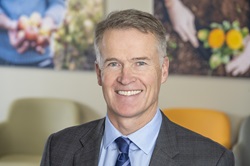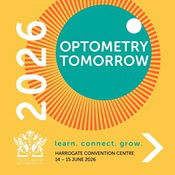General News
‘Timely’ review of NHS highlighting patient choice

‘Timely’ review of NHS highlighting patient choice
A MAJOR report into the state of the NHS in England has been welcomed as ‘timely’ by NHS ophthalmology provider Newmedica.
The review by surgeon and former health minister Lord Ara Darzi has been published today and sets out the challenges facing the NHS, including ensuring patient choice is provided in line with the NHS constitution. Patients facing long waiting times and access to care difficulties and the impact of the Covid-19 pandemic were also identified as among other challenges for the NHS.
The report was commissioned by Health and Social Care Secretary Wes Streeting and will feed into the Westminster government’s 10 -year plan for the NHS.
Responding to the report, Newmedica medical director
says: ‘Lord Darzi’s report is a timely piece of work, identifying multiple challenges facing the NHS. The independent sector has a positive role in supporting the NHS address challenges and meeting patient need.’
He adds that it is notable that patient choice as set out in the NHS constitution is highlighted in the report. The report says: ‘But in practice, patients are not routinely asked where they would like to receive their care; to exercise their rights, them must demand them of their own volition, and nearly half of adults are unaware that they have a legal right to choose’.
This is despite, as the report notes, choice remains popular with 75% of the public agreeing they should have a right to choose their provider in opinion polls.
‘The independent sector plays a critical role in providing choice for patients, with access to timely treatment and care. Newmedica provides short wait times as well, which helps ease pressures on NHS ophthalmology departments and delivers elective care in the community,’ says Mr Kirkpatrick.
 ‘Productivity is another area highlighted by Lord Darzi and Newmedica provides a highly efficient service that delivers quality patient care and eases pressure on the NHS.
‘Productivity is another area highlighted by Lord Darzi and Newmedica provides a highly efficient service that delivers quality patient care and eases pressure on the NHS.
‘Our work to support the NHS in reducing the cataract surgery backlog built up during the Covid-19 pandemic is an example of where Newmedica, and the independent sector as a whole, has made a material difference. Independent sector ophthalmology support was specifically highlighted by the Government’s Elective Recovery Taskforce as a model example of how NHS backlogs can be cleared.
‘We also use a higher quality lens than the majority of other providers as standard for all NHS patients, at no extra cost to the NHS. This results in fewer follow up Yag capsulotomy effectively producing long term savings for the NHS.*’
Mr Kirkpatrick concludes, saying: ‘Newmedica will be a voice for patients in the national conversation about the evolution of the NHS. Having worked in collaboration with the NHS for 17 years, we will also continue to work with colleagues from across the health service to deliver excellent, sustainable and efficient patient care.’
And a further message from Giles Edmonds (Specsavers) regarding the Darzi Report
Community optometry offers solutions to challenges facing NHS identified in new report
COMMUNITY optometry is ready and able to support the NHS address multiple challenges – including the ‘health catastrophe’ of homelessness – highlighted in a new government-commissioned report.
That’s the message from Specsavers after a report into the state of the NHS in England by former health minister and surgeon Lord Ara Darzi was published after being commissioned by Health and Social Care Secretary Wes Streeting.
The report says patients are facing access to care challenges with NHS hospitals and GPs struggling to meet demand – resulting in long waiting times for treatment, congested A&E departments and patients finding it difficult to get GP appointments. People experiencing homelessness are facing particular problems, notes Lord Darzi.
‘Lord Darzi says that a shift to care closer to home needs to be locked in to meet the challenges facing the NHS,’ says Giles Edmonds, clinical services director at Specsavers. ‘Community optometry and audiology are absolutely part of the solution, improving access to care and easing pressures on other parts of the health service.
‘By managing eye-related conditions in the community, primary care optometrists can save millions of GP consultations, routine hospital appointments and A&E attendances every year. Specsavers is also committed to the continuing professional development of clinicians and their teams to deliver this positive change.’
 He adds that action is needed in England to address a postcode lottery to eye care with Specsavers having submitted evidence to the Darzi review. ‘A consistent commissioning and funding approach will empower optometry to do even more to free up capacity in busy hospitals and look after patients in the community.’
He adds that action is needed in England to address a postcode lottery to eye care with Specsavers having submitted evidence to the Darzi review. ‘A consistent commissioning and funding approach will empower optometry to do even more to free up capacity in busy hospitals and look after patients in the community.’
In particular, he says that an NHS-funded community minor and urgent eye care service being made available across the whole of England would have a positive impact.
‘Specsavers also supports for a single standardised national pathway integrating hospital eye services and high street opticians to enable the detection, management and monitoring of stable glaucoma in the community. This will make full use of the skills of optometrists and their clinical teams in England.’
Mr Edmonds also notes that Lord Darzi shines a light on the health impacts of homelessness and the NHS. The report says that ‘homelessness is a health catastrophe’ with people experiencing homelessness facing multiple problems in accessing care.
‘Specsavers is working to improve access to eye health care for people experiencing homelessness with our partnerships across the UK and the Republic of Ireland.
‘We also continue to call for the scrapping of unnecessary barriers to eye health services for people experiencing homelessness not in receipt of state benefit and for people who cannot leave their homes unaccompanied is another important measure,’ says Mr Edmonds.
























